Lapis Lazuli is one of the most important semi-precious stones used since ancient cultures. Its colour is a deep, dense, celestial blue. This colour is considered a symbol of royalty, honour, gods and power.
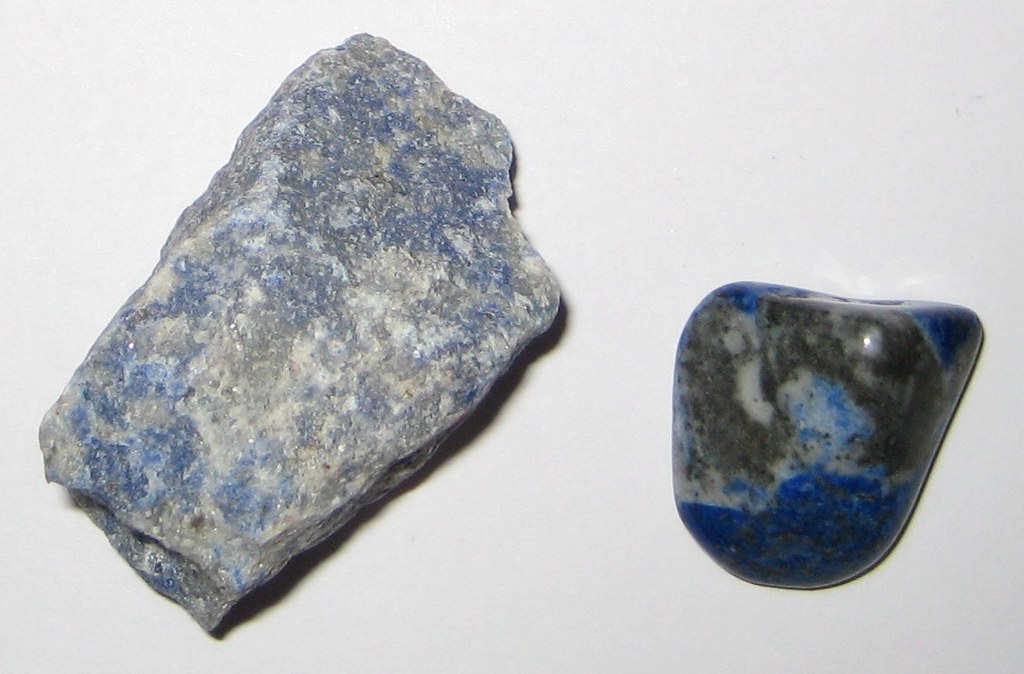
Image source: https://search.creativecommons.org/photos/59fbd166-123c-486d-9612-2df5e583d368 by steph.clifford
What is Lapis Lazuli?
Lapis lazuli is an opaque gemstone that may range from brilliant to medium royal, to dark blue color. Its composition consists of a mixture of different minerals, including a predominant presence of lazurite, sodalite, noselite, calcite, and pyrite. Lapis lazuli usually presents like crystalline limestone due to contact metamorphism and its brilliant blue color depends on its sulfur content. More the color is evenly distributed on the stone surface, higher is its quality and value.
The most expensive and precious form of lapis lazuli is mined in Afghanistan. It has a uniform deep blue color while less quality lapis lazuli is mined in Chile and Russia.
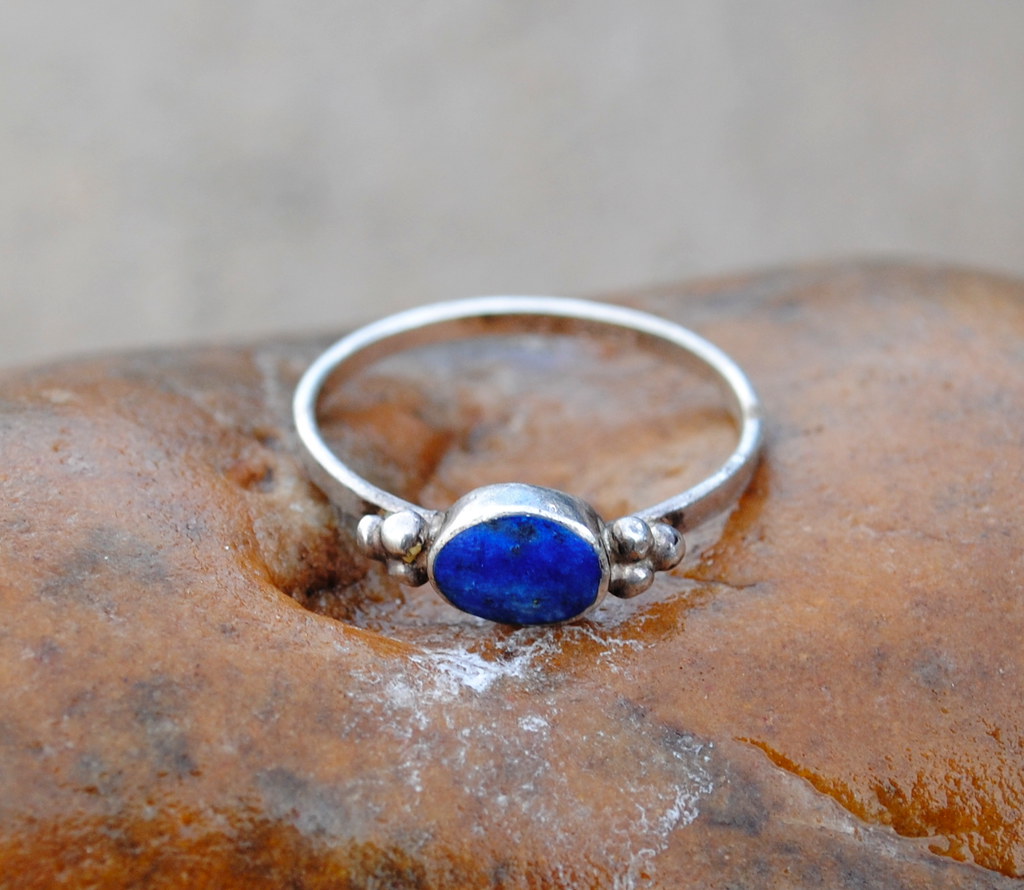
Image source: https://search.creativecommons.org/photos/951e2e1c-69bf-4387-86f1-e16ce8a7444f by Deidre Woollard
How Lapis Lazuli form & different types
In addition to lazurite, lapis lazuli usually contains calcite and pyrite. However, to be called “lapis lazuli,” a stone must have a deep blue colour and contain at least 25% blue lazurite.
Calcite is often the second most abundant mineral present in lapis lazuli, which appeared as white layers and fractures.
Pyrite usually occurs in lapis lazuli as tiny and randomly gold-coloured grains. Copious numbers of grains can be concentrated into distinct layers.
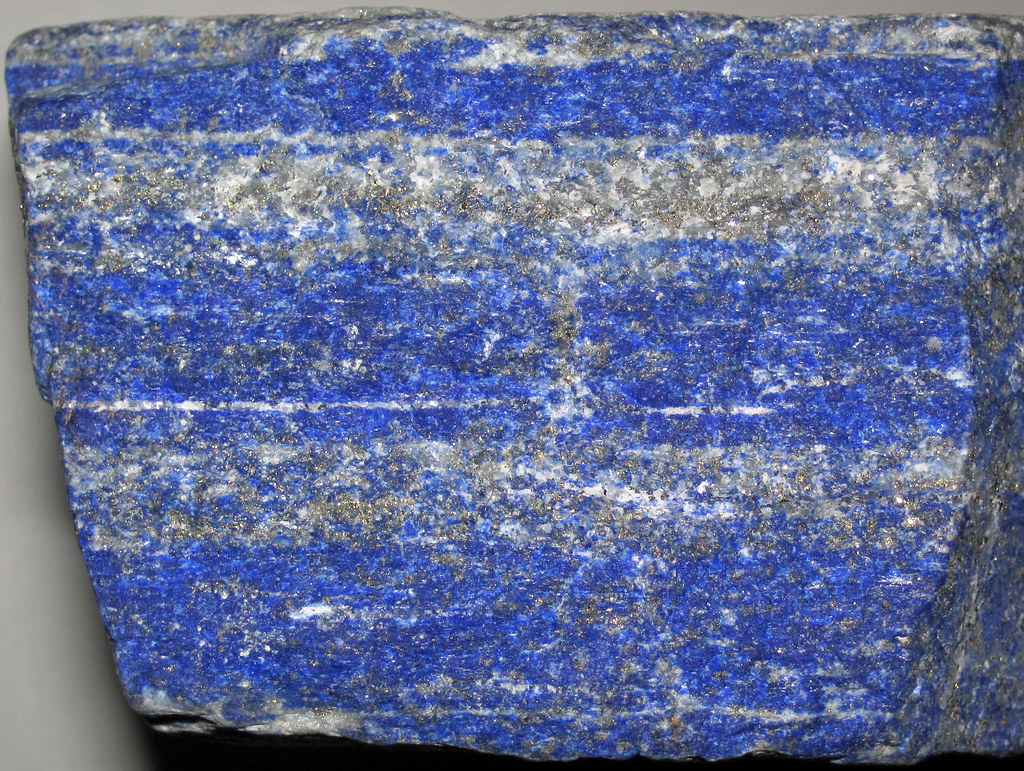
Image source: https://search.creativecommons.org/photos/759e7062-eb8d-422f-ac19-443d4ee206ec by James St. John
–The following names are common jewellery trades that refer to various qualities of lapis-lazuli:
- Persian Lapis: This quality from Afghanistan, it is the best colour and is difficult to obtain. It is an intense and uniform color, slightly dark violetish blue with little or no pyrite and no white calcite veining.
- Russian, or Siberian, Lapis: It has various tones and intensities of blue and contains pyrite. It is considered to be a good quality gem.
- Chilean Lapis (from Chile): it contains numerous white calcite grains and is often tinged or spotted with green. It is usually the least precious type.
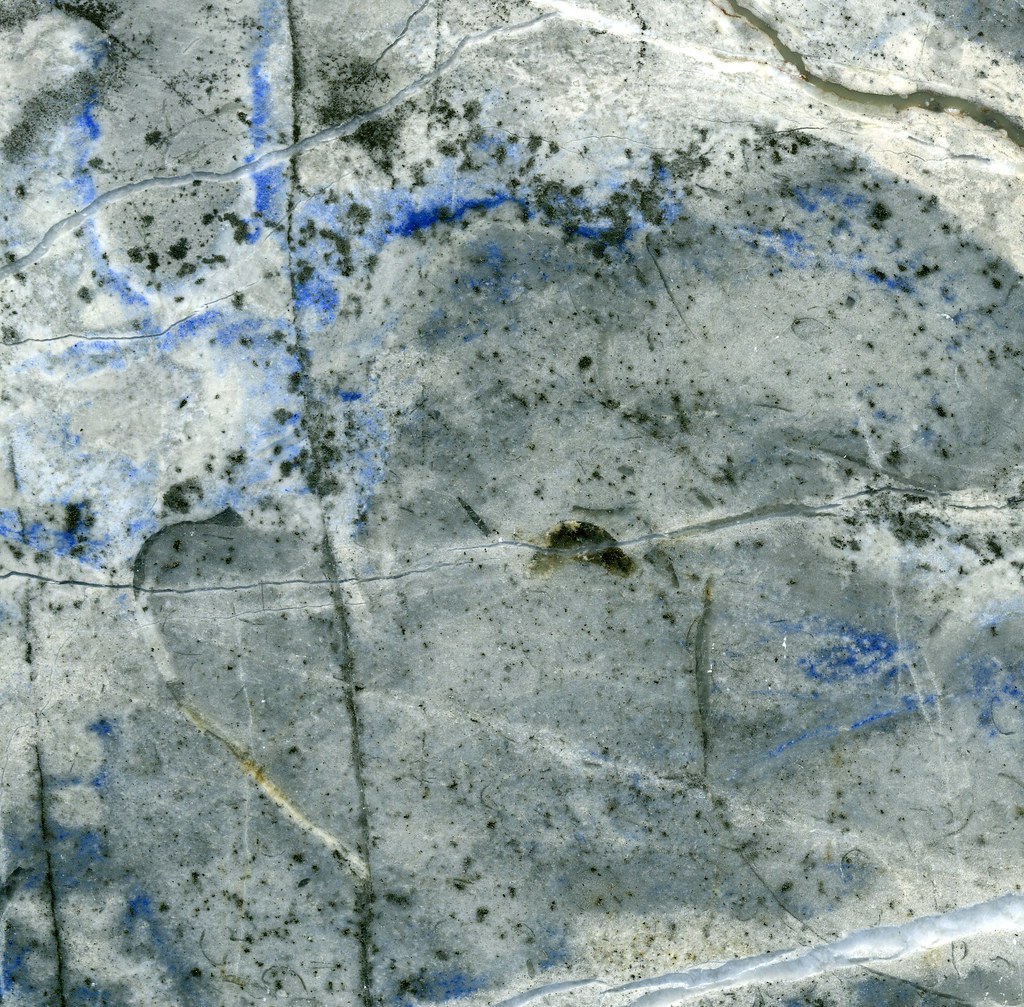
Image source: https://search.creativecommons.org/photos/0f699768-4048-4ab6-9c27-46fb0d3df1d6 by James St. John
What are Lapis Lazuli Characteristics?
- Colour: Lapis lazuli color is slightly greenish blue to violetish blue, medium to dark in tone, and highly saturated. In its most precious form, lapis lazuli has no visible calcite but it might contain gold-colored pyrite layers (in this case, their presence does not necessarily lower lapis lazuli’s value). The lowest quality lapis looks dull and green, the result of an excess of pyrite.
- Cut: Typically, lapis cutting styles for use in jewellery are cabochons, beads, inlays, and tablets, as well as decorative carvings. Nevertheless today, lapis is frequently fashioned into freeform and nature-themed sculptures. Some of these carvings become wearable art, others are purely decorative.
- Clarity: Lapis frequently contains varying of whitish calcite matrix or veins of glinting yellow pyrite or both.
- Carat Weight: Lapis stone can be huge, so the larger sizes are carved into art objects, used in designer jewellery, or cut into calibrated sizes.
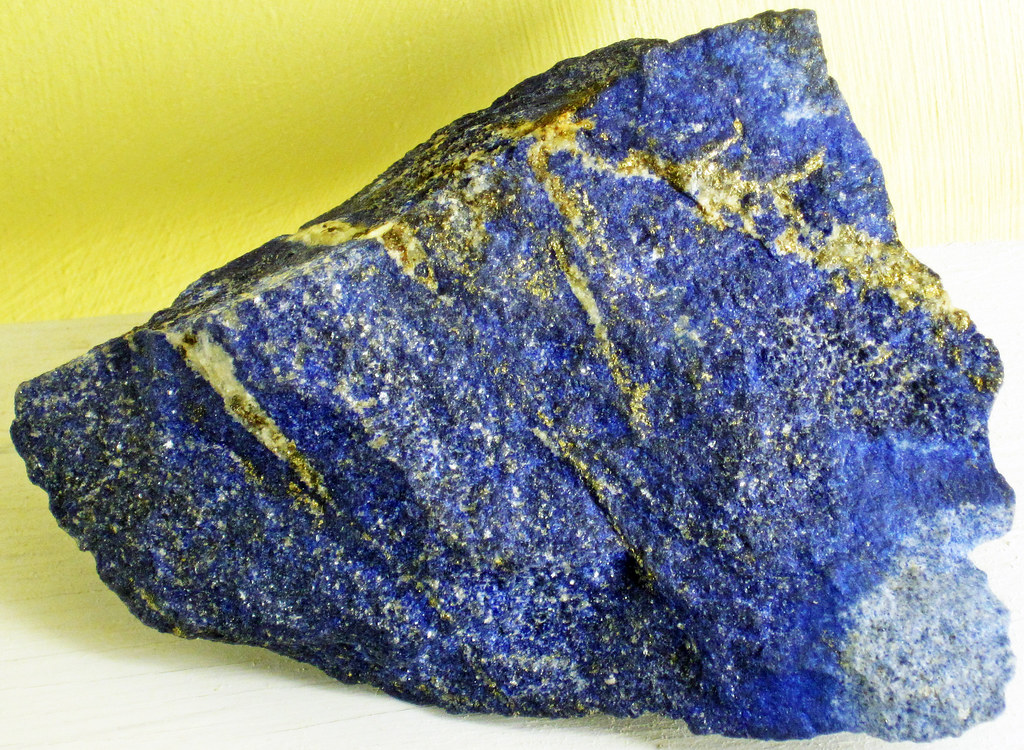
Image source: https://search.creativecommons.org/photos/f152027b-1c84-449b-b887-a9698ad9f302 by James St. John
How was Lapis Lazuli used throughout history?
Historians believe that the link between humans and lapis lazuli starts more than 6,500 years ago. Ancient civilizations of Mesopotamia, Egypt, China, Greece, and Rome used this gem and appreciated it for its vivid and brilliant color.
Throughout history, lapis has been fashioned into practical objects, including game boards, bowls, dagger handles, hair combs, and amulets.
Lapis is an excellent stone for executives, journalists, and psychologists, representing wisdom and good judgment. It’s also a powerful crystal for activating the mind and improving intellectual ability. It is also a stone of friendship and brings harmony in relationships, it improves calm and loving communication.
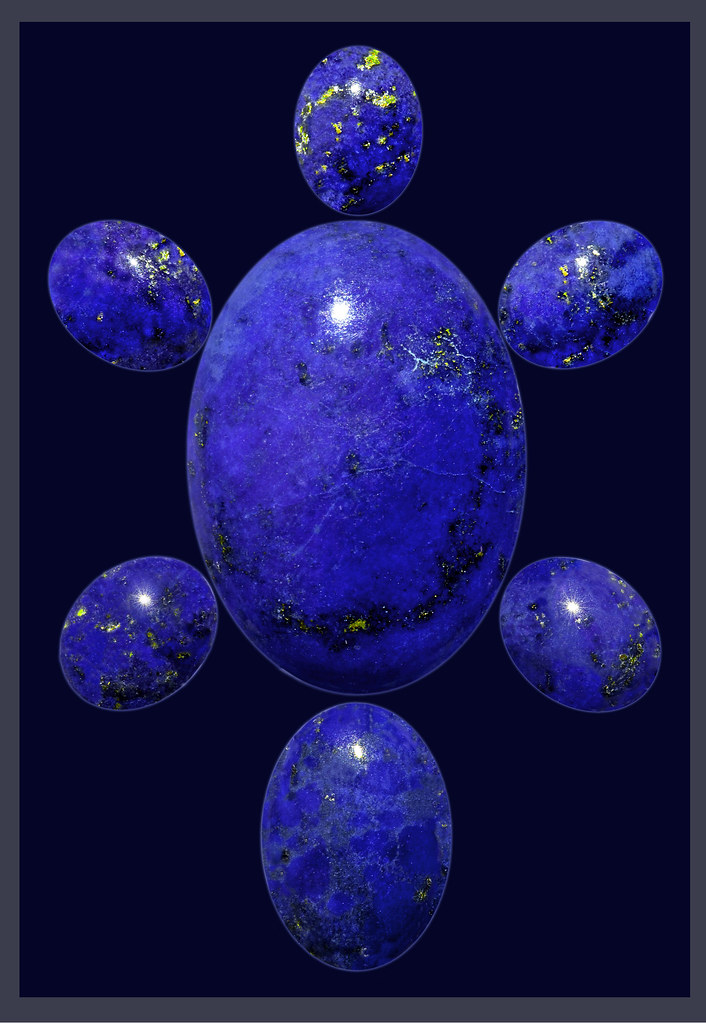
Image source: https://search.creativecommons.org/photos/747ca472-8b5a-4b32-90aa-16005171ccb9 by docoverachiever
Info source:
https://www.gia.edu/lapis-lazuli-history-lore
https://www.crystalvaults.com/crystal-encyclopedia/lapis
https://www.thespruce.com/use-of-lapis-lazuli-in-feng-shui-1274374
